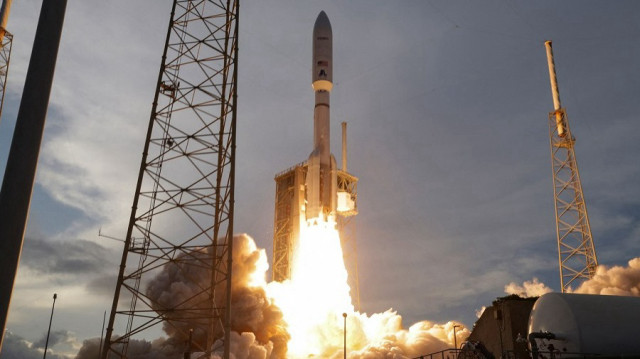
Amazon deploys 27 Kuiper satellites in major step toward establishing global network
Amazon has officially entered the satellite internet race with the successful launch of its first 27 Project Kuiper satellites, directly challenging Elon Musk's Starlink network.
The satellites were deployed Monday evening aboard an Atlas V rocket launched by United Launch Alliance from Cape Canaveral Space Force Station in Florida. Amazon described the event as "the start of our journey."
The launch marks a major milestone in Amazon's effort to build a constellation of more than 3,200 low-Earth orbit satellites to deliver high-speed internet globally, particularly to underserved and remote regions.
With Starlink already serving over 4.6 million customers worldwide, Amazon faces tough competition.
"No matter how the mission unfolds, this is just the start of our journey, and we have all the pieces in place to learn and adapt as we prepare to launch again and again over the coming years," said Project Kuiper Vice President Rajeev Badyal in a statement.
Despite Amazon's optimism, industry experts remain cautious about the project's commercial viability.
"Kuiper is going to have a long way to go to catch up to be able to serve a significant part of the market," Craig Moffett, senior managing director at MoffettNathanson, told CNN.
"It looks like there is a very, very high probability that this will turn out to be too late for it to ever come close to being an attractive investment."
Although Kuiper satellites will orbit closer to Earth than traditional communications satellites, enabling faster data transmission, competing with Starlink's scale will require substantial investment.
According to Raymond James, a financial services firm, Amazon may spend up to $17 billion to deploy its first-generation system, with annual operating costs potentially reaching $2 billion.
Amazon's entry into the sector also has geopolitical significance.
“I certainly imagine that NATO and Ukraine are at least quietly dancing for joy about the idea of having someone other than Elon Musk in the position of providing capacity,” Moffett said, referring to recent controversies tied to Musk's role in global conflicts via Starlink.
Amazon expects to begin connecting its first customers to the network later this year, though the pace of deployment remains uncertain.
Hello, the comments you share on our site are a valuable resource for other users. Please respect other users and different opinions. Do not use rude, offensive, derogatory, or discriminatory language.
The floor is all yours.








